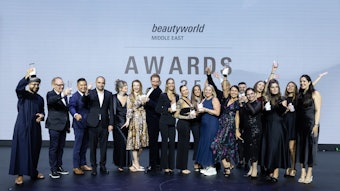This letter to the editor is in response to "The Impact of Negative Fragrance Messaging." We welcome comments and insights on this or other topics here.
You quote Cynthia Reichard and Michelle Harper as saying “that positive fragrance industry stories are virtually non-existent” in the media.*
I beg to differ.
The industry does have – though it doesn’t control it – a network of positive buzz sources on fragrance: the specialized blogs and discussion boards, dozens of editors, and tens of thousands of readers whose posts on fragrances do explore aspects of the industry (perfumers, aromatic materials, history). Their blogs (including mine, Grain de Musc) are what pops up when someone Googles a fragrance. Amateurish though some may seem, they convey a real and active interest that often goes beyond the consumer review. However, apart from the smaller niche houses and the odd perfumer, the industry has never really engaged with bloggers, save for the few who reproduce press releases almost verbatim.
As it is, the current viewpoint of fragrance bloggers and their readers on the industry has been very negatively affected by the recent buzz created around Luca Turin’s latest NZZ Folio article on the death of perfumery, following the new International Fragrance Association (IFRA) restrictions [43rd Amendment] on materials. The most common explanation given in the blogs, or by blog readers, for these restrictions is that “the industry wants to make more money by banning naturals and replacing them by patented synthetics."
The official IFRA line seems to be that fragrances need to be made “safer” (as though entire populations had been scratching themselves bloody after spraying on Mitsouko, Joy or Diorissimo) in order to counteract the negative press they have been attracting. The links you provide to scare stories based on bad science are indeed cause for concern. But by claiming that the reformulated fragrances are perfectly “safe," does anyone seriously think the anti-perfume lobby will back down? They won’t: they aren’t writing letters to their congressmen to get an allergy-free Mitsouko. They want the stuff banned. What they object to is the smell, inasmuch as I’ve understood the studies performed on multiple chemical sensitivity syndrome (MCSS) sufferers. The “evil chemicals” story is just rationalization.
In another article from P&F, Estée Lauder’s Harvey Gedeon is reported as saying, “The industry must demonstrate fragrance's benefits and back it up with solid science. Because no matter how many materials fragrance houses cut from their lists, activists will always demand further cuts.” This seems to indicate that the industry is aware of the relative uselessness of restrictions, which it is nevertheless implementing. There is a definite need for sound scientific vulgarization here, but instead, what we’re getting from the industry is the secret spaying of most classic fragrances. An overwhelming number of them will be reformulated and defaced, without apprising consumers that what’s in the bottle may have the same name, and the same price, and not smell the same at all. Which borders on fraud.
Why did the industry not consider labeling on allergy risks? A rash never killed anybody, and just about any cosmetic product, no matter how “hypo-allergenic”, is going to cause some reactions in some of the population. You just switch to another product. Why did the industry not lobby to protect its own products and heritage, rather than enforcing regulations which, by its own admission, may not solve the “chemophobia” backlash at all?
I don’t pretend to have the competence to evaluate the science that backs up the new regulations. But from where perfume lovers are standing, the industry seems to have shot itself in the foot – and all the perfumers I’ve spoken to agree, though none can really go on record.
This is what the situation looks like from the point of view of a blogger and perfume lover with only a limited inside view of the industry. Perhaps you’d care to shed some light on the situation. My pages are open to you, and to any person you may care to forward this letter to: you are in a much better position to judge who could address this issue with some amount of much-needed transparency.
Best regards,
Denyse Beaulieu, editor of Grain de Musc
*Beaulieu correctly quotes the text; however, it is not a direct quote from the event speakers. -Ed.










